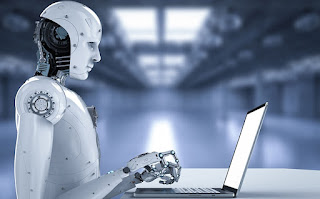AI: The job Creator - How artificial intelligence is generating more employment opportunities than it eliminates
The rise of artificial intelligence (AI) has sparked heated debates and concerns about its potential impact on employment. While it is true that AI has the potential to automate various tasks, it's important to recognize that this revolutionary technology is also paving the way for new job opportunities. In this article, we'll delve into the ways AI is creating more jobs than it replaces, explore emerging roles in the AI-driven job market, and discuss strategies for adapting to the evolving workforce landscape.
AI as a Job Creator:
New industries and job roles: AI is transforming industries by creating demand for new skills and expertise. As AI systems become more advanced and integrated into various sectors, we'll witness the emergence of new roles, such as AI ethicists, AI trainers, and AI maintenance engineers. These professionals will be responsible for ensuring that AI systems operate ethically, effectively, and efficiently.
Boosting innovation and entrepreneurship: AI is revolutionizing the way businesses operate by automating routine tasks and streamlining processes. This allows companies to focus on innovation and growth, ultimately leading to the creation of new products, services, and job opportunities.
Enhancing human capabilities: AI is not only automating tasks but also augmenting human capabilities. By collaborating with AI systems, human workers can achieve higher levels of efficiency and productivity, opening up new possibilities for career advancement and job creation.
Preparing for the AI-Driven Job Market:
Embracing lifelong learning: To stay competitive in the rapidly evolving job market, individuals must commit to continuous learning and skills development. By acquiring new skills and staying abreast of the latest AI advancements, workers can ensure their relevance and employability in the AI-driven economy.
Focusing on soft skills: While AI excels at automating routine tasks, it lacks the human touch required for effective communication, empathy, and problem-solving. By honing soft skills, individuals can differentiate themselves from AI systems and remain valuable assets to their organizations.
Adopting a growth mindset: Embracing change and adapting to new technologies is crucial for thriving in the AI-driven job market. A growth mindset fosters resilience, curiosity, and adaptability, equipping individuals to navigate the complexities of the AI era.
The notion that AI will lead to widespread job loss is a common misconception. In reality, AI is generating more employment opportunities than it eliminates, transforming industries, and fostering innovation. By embracing lifelong learning, honing soft skills, and adopting a growth mindset, individuals can ensure their success in the AI-driven job market, reaping the benefits of this groundbreaking technology.
As we continue to integrate AI into our lives, it's essential to recognize the potential for growth and positive change that this technology brings. AI is not only automating tasks but also creating new industries, enhancing human capabilities, and driving innovation. By understanding and embracing the opportunities that AI presents, we can unlock a future of unparalleled prosperity and meaningful work.

Comments
Post a Comment